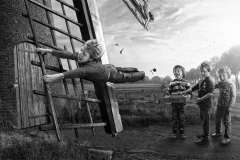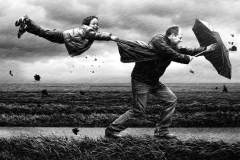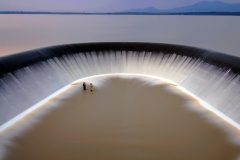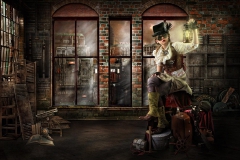That’s fantastic! However, there is so much information that you may not have a clue where or how to start. The next few paragraphs detail some practical tips that will get you started in the exciting world of photography.
Be quick when taking your pictures! If you wait too long, you risk losing your shot due to changing scenery. It is better if you can take shots quickly.
Photography should be something that you enjoy doing. Photography will help you remember a certain time or event that was important and that you may want to share with others. Photography should remain fun, even when you are studying it.
Moving around your subject is permissible and allows you opportunities for better shots. Try taking pictures of the subject from below, above, to the left and to the right.
External Flash
Most modern digital cameras have a flash that automatically deploys when they detect low-light situations. This is fine for casual snapshots, but if you want more professional results, you need the wider lighting options you can get by using an external flash. Check to make sure your camera has a “hot shoe” on top that will accommodate an external flash, then go to a professional camera store to ensure that you are getting one that automatically syncs with your camera.
Find the subject that you want to photograph. An interesting subject can help, but it is up to you to make your subject interesting thanks to your creativity. Carefully choose objects that inspire you, or find a model who will pose for you.
Consider focusing on your subject, and then moving the camera so the subject is not located in the center of the shot. A centered subject is the norm and most people will not find it interesting or artistic. Off-centering your subjects can create an interesting element for the viewer.
When shooting a picture, judge the surroundings and choose the right aperture, shutter speed and ISO. These settings can determine what your picture will look like. It is possible to use overexposed photos in some cases, but generally these should be avoided. Experimentation with these features and how they work together will lead you to the perfect combination.
Consider becoming a member of a photography club. You could also meet up with another photographer and take photos with them. While other photographers can provide you with valuable information and advice, be careful not to begin imitating their personal styles in your own photography. Take some pictures together of the same object, then compare how your styles differ.
Having good skills in photography does not involve a big secret. Do not stop taking pictures. With each image that you capture, you gain experience. Feel free to experiment; there is no need to develop or keep all of the photos you take, especially if you use a digital camera. You will get better and better as time goes on, taking shots of everything and judging them later on to evaluate how you might have gotten a better photo.
When you are first starting out in photography and want learn how to take great pictures, learning about proper composition is key. Such as with the other arts, if composition is lacking, your work isn’t the best it may be. There are many different methods of composition that you can practice to improve your photography.
Master photographers agree, less IS more. You should not add too much to your pictures, or you will run the risk that they will look cluttered. Simplicity can translate into elegance, so strive for that in your shots.
Do you need pictures of subjects that are soaked or misted with rain? Try to create the effect of rain on your own by carrying a rain bottle with you.
Try putting a frame around your each of your shots. Not just placing a wooden or metal frame around your shots, but a “natural” one. Look for elements that you can use as natural frames to your main point of focus. This is called composition, and you will need to develop this skill.
This article has likely provided you with some new techniques you are looking to try out in your own photographs. Implementing new ideas into your process helps to keep your photographs fresh and dynamic. If you keep up the hard work, you can elevate your photography to the next level.







